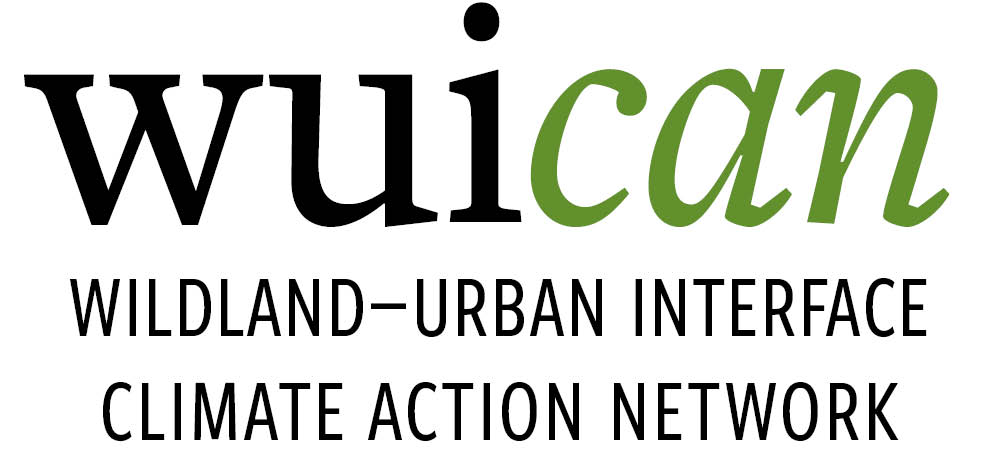
Jake Szabo
April 7, 2025
The scarlet gilia’s red, trumpet-shaped flowers blow gently against the backdrop of Gothic Mountain in the Rocky Mountains, its chossy crags rising from green meadows below dotted with flowers and trees. The scent dispersed from the flower’s star-shaped petals allow researchers at UC Irvine to examine the effects of climate change.
“I’m obsessed with the environment and want to care for and protect it,” says Janelle Bohey, a graduate student researcher at the Campbell Lab and the Research Justice Shop (RJS) at UC Irvine.
Growing up on the rural California coast, Bohey was surrounded by the effects of climate change. Over the years, she could see “invasive species moving in and ecosystems changing.” Massive packs of elephant seals moved further south each year, occupying beaches that she used to visit. Their lumbering presence triggered her awareness of climate change.

Impact of floral scents
Coupled with her passion for the outdoors, Bohey began her undergrad career at UC San Diego studying environmental policy and ended up majoring in environmental systems. Undergrad research changed her career trajectory. “I loved it so much,” she shares. “It was the first time I went to work and it didn’t feel like work at all, I just got to play with my plants.”
Bohey’s dissertation research in the Campbell Lab looks at how climate change affects floral traits like size, color and scent. On the smallest scale, her research examines how manipulating soil conditions, like the changing amount of nitrogen or altering microbial communities, can affect the scent produced by flowers of a single species. More broadly, her research looks at plant-pollinator networks, examining how pollinators interact with flowers with different floral scents and how these interactions will respond to climate change.
To analyze floral scents, Bohey first samples the chemicals that produce scents from the flower (volatile organic compounds) and then uses gas chromatography-mass spectrometry to identify the compounds within the scent. Bohey says that because of the steep learning curve of these techniques they have “historically been left out” of floral trait research.
Her research seeks to understand how flowering plants will be affected by drought and changes in climate. Drought may cause smaller quantities of nectar to be produced or alter the nutritional qualities of pollen, resulting in fewer visits by pollinators. The effects of climate on floral scent may alter species behavior in an ecological system, having potential broader impacts.
Diversifying science networks
As a member of the policy and legal research team of the Research Justice Shop, an organization that focuses on BIPOC (Black, Indigenous and People of Color) led research in frontline communities, Bohey was first introduced to the Wildland-Urban Interface Climate Action Network (WUICAN). She says that working with RJS “excites me because I get to work on projects with partners that have positive impacts.” At RJS, Bohey has helped construct policies for engaging with community partners.
Bohey conducts her field work in the summer at the Rocky Mountain Biological Laboratory (RMBL), an independent field lab located in the ghost town of Gothic, Colorado, where “you get to interact with scientists from all over the country and it’s a beautiful place.” Bohey’s interactions with colleagues from diverse backgrounds have inspired her to give back to frontline communities and incorporate them into scientific discourse.

Bohey was President of the Society for Advancing Chicanos/Hispanics & Native Americans in Science (SACNAS) at UC Irvine from 2023-2024. She currently serves as the treasurer. “We were really small when I first joined,” says Bohey. As president, she increased the reach of the organization and participation among members by involving the chapter in a mini conference with other Southern California chapters. “It’s a space where I tried to uplift and promote Hispanic and Native American voices.” According to Bohey, incorporating different perspectives based on lived experience supports problem solving, critical thinking and compassion in the sciences.
In urban areas of Orange County, many communities don’t have easy access to nature. For Bohey, growing up on the California coast and “being comfortable in an outdoor space” are part of what drive her care for the environment and her work at RMBL. She says, “I want others to feel supported and belong in spaces where historically they’ve either not been welcomed or are not well represented.”
Jake Szabo is a senior English major at the University of California, Irvine. He is a 2024-2025 WUICAN Climate Communications Fellow with the University of California Humanities Research Institute (UCHRI).
WUICAN acknowledges our presence on the ancestral and unceded territory of the Acjachemen and Tongva Peoples, who still hold strong cultural, spiritual and physical ties to this region.
Contact:
Research Justice Shop
researchjustice@uci.edu
Join the WUICAN mailing list


Follow us